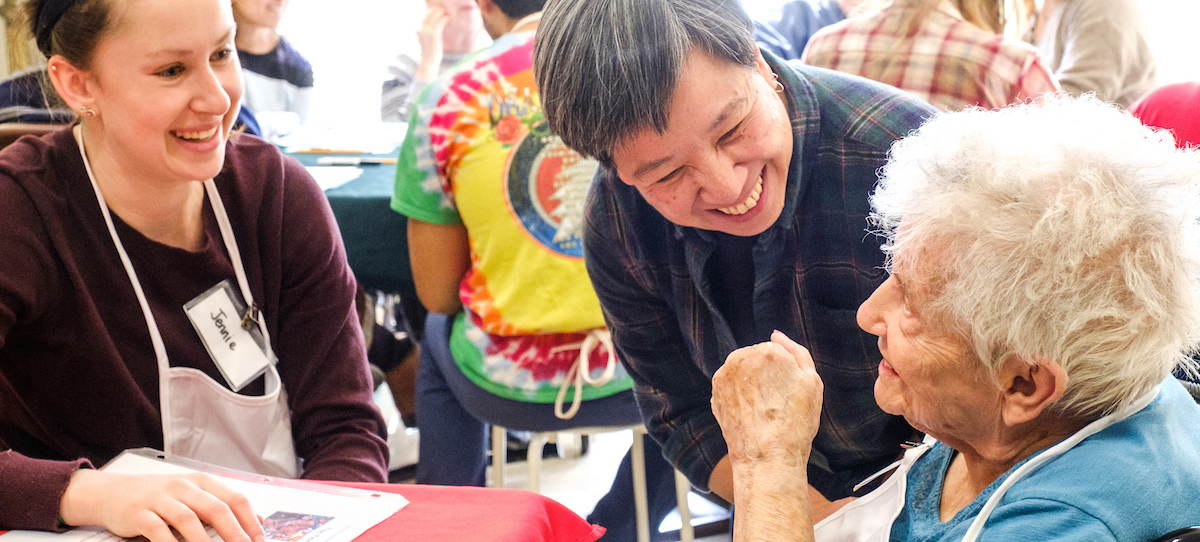Elizabeth Lokon quoted in Journal of American Medical Association network article (JAMA)


...
Lokon is director of Opening Minds through Art at Scripps Gerontology Center, Miami University
The Arts Dispel medical Students’ Qualms About Dementia
Excerpts from an article by Rebecca Voelker, MSJ, Medical News & Perspectives, JAMA
[…]
As the number of people diagnosed with dementia increases and the search for effective treatments appears stymied, experts said that addressing future physicians’ attitudes has become more pressing
[…]
Through OMA, students and people with dementia work together to produce failure-free art. "Every piece is abstract," Lokon said. It's all about the discovery process of creating art rather than an expectation of what the final product should look like. Individuals with dementia determine the aesthetic and students assist by washing brushes or helping with various materials used during the program. "Students are taught how to give autonomy back to the elder," Lokon noted.
In a study that used the DAS to evaluate 156 Miami undergraduate students who participated in OMA, Lokon and her colleagues found that their attitudes toward and comfort level with people who have dementia improved significantly after a semester’s worth of weekly meetings.
Not all the Miami students who participate in OMA are in health-related fields, but Lokon is launching pilot programs at 8 medical schools. While planning the pilots, Lokon searched the medical literature for articles about how medical schools teach students to have empathy and compassion for older adults.
"They focus on [healthy] older adults because they believe that exposing medical students to people who are frail and sick and have dementia will strengthen their stereotypes and they become more negative toward aging," Lokon said.
That notion, she added, flies in the face of what she has seen and documented with Miami students. "Our students actually learn a great deal and become more positive," she said.
[…]

